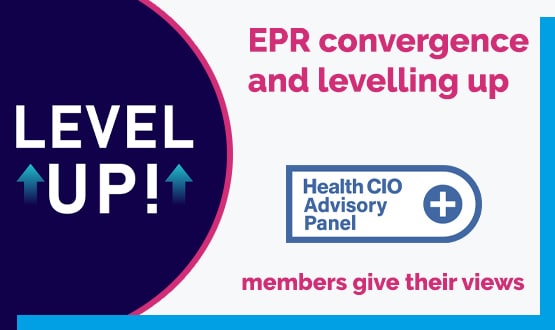Service excellence; does it really deliver business success?
- 19 December 2019

In her latest column, for Digital Health, our CIO of the Year, Mandy Griffin, explores how her customer service experience has helped in her NHS role.
I didn’t arrive into the NHS as the complete package, anything but! However, I did arrive with ambition and a willingness to learn.
My introduction into the NHS was as the chief operating officer of The Health Informatics Service (THIS) an IM&T support service hosted by Calderdale and Huddersfield NHS Foundation Trust.
THIS was formed in 2006, as part of the merger of Calderdale and Huddersfield Health Informatics Service with Wakefield Health Informatics Service. Set up as a provider of IM&T services to West Yorkshire, THIS has continued to provide services to a number of clients operating across the local health community.
These include large providers such as Leeds Teaching Hospitals, local clinical commissioning groups (CCGs) covering Calderdale, Kirklees and Wakefield and corporate NHS clients such as the NHS Leadership Academy and Health Education England.
THIS had set an ambition to grow its market share and become recognised as the IM&T provider of choice, a commercial entity in its own right. The strategy was to achieve this by improving the overall customer experience by providing the best possible service at every contact point no matter where or for what.
“We pride ourselves on ensuring that our customers are completely satisfied with the service they receive.”
I had spent 27 years ensuring the customer was completely satisfied with the service I provided and I knew if I could translate that learning from my time at M&S into the world of health informatics, I could really make a difference; it shouldn’t matter what the product was the principles of service excellence are the same. This really did play to my strengths a bit of a gift really! I couldn’t wait to get started.
As the NHS becomes more reliant on digital, the dependence on reliable support services that deliver great service becomes more and more critical I always believed that in today’s highly competitive business environment, service excellence is the only true differentiator. It’s not just about the customer always being right It’s about treating your customers like you’d treat your family.
So is it just as important in the healthcare IT as it was in M&S?
The healthcare environment back in 2009 had started to change; heavily influenced by the national programme, transforming community services cash was about to become less accessible, procurement rules changed, outsourcing became more popular and more and more private organisations were competing for the healthcare IT business. THIS had to raise their game.
This was where the M&S experience came into its own. I needed to lead the team into a commercial world in order to ensure our business survived major change but grew.
How would THIS compete?
THIS developed a set of business standards that introduced a consistent and professional approach that our customers expect.
We developed more formal contract arrangements with all our customer organisations including pricing metrics and measurable Service Level Agreements (SLAs) that would be reviewed through regular contract review meetings, we became the only Health Informatics Service in England to obtain the recognised industry standards which demonstrated our commitment to the provision of high quality services and solutions.
We looked for every opportunity to exceed customer expectations through our actions, over 50% of the 200 strong workforce worked with the local university and successfully obtained NVQ Level 1 for customer service. We then introduced the Net Promoter Score (NPS) to measure the effectiveness of what we had put in place, we were ready to take on the world! But did we?
Our customer base did change but we have grown since 2009 year on year, the NPS has consistently reached over 75 and since 2009 we have almost doubled our annual turnover I think we could describe that as success, don’t you?





1 Comments
The NHS and its associated quangos should not be judged on “business success”, but purely on CLINICAL factors, mainly clinical outcomes and timely action.
Comments are closed.